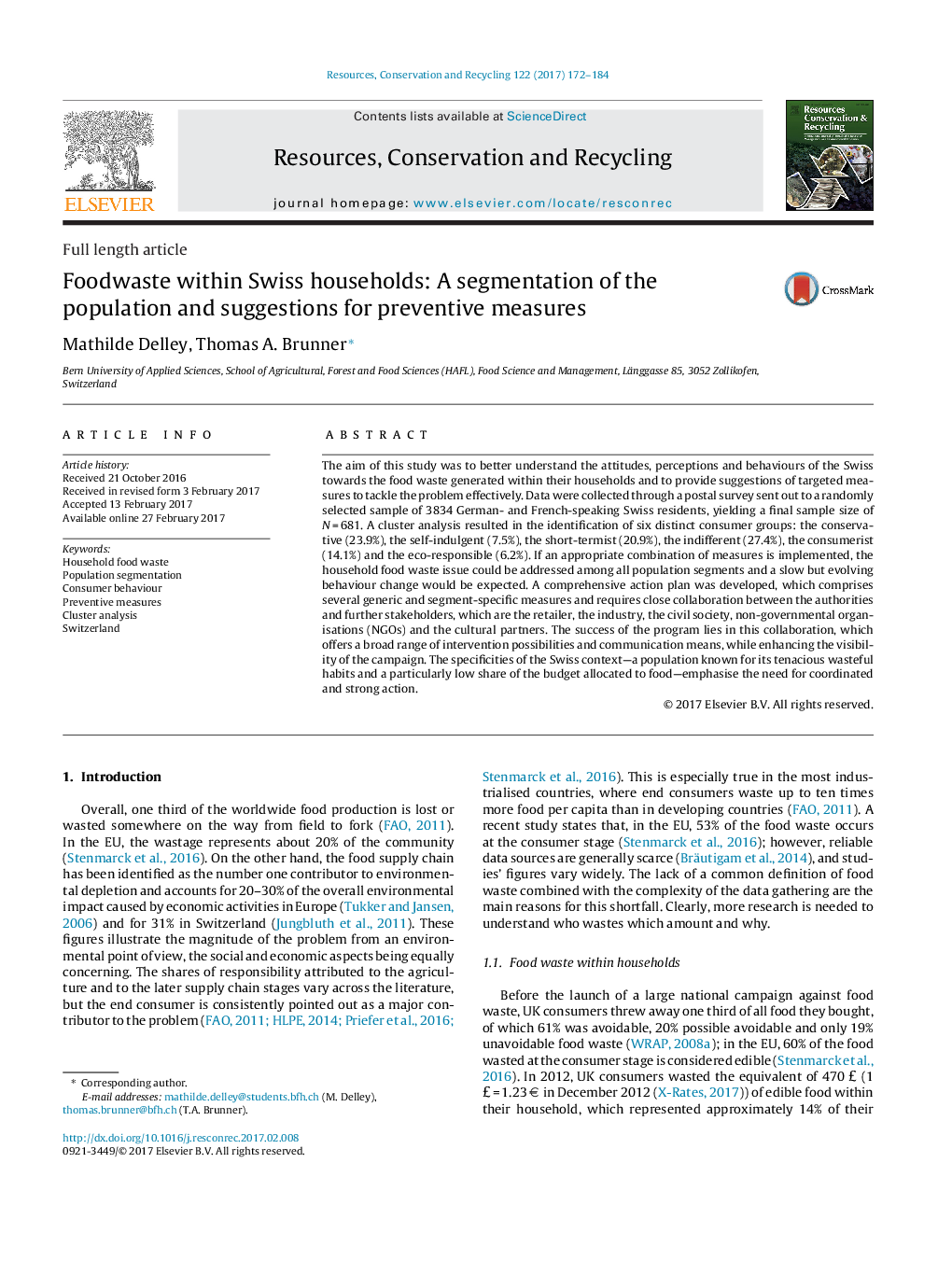| کد مقاله | کد نشریه | سال انتشار | مقاله انگلیسی | نسخه تمام متن |
|---|---|---|---|---|
| 5118788 | 1485670 | 2017 | 13 صفحه PDF | دانلود رایگان |
- We analysed and characterised the behaviour of the Swiss population towards household foodwaste.
- A cluster analysis resulted in six distinct segments.
- A comprehensive and segment specific action plan was developed to reduce the household food waste generation.
- Multi-stakeholders engagement and collaboration are the key to a successful and sustainable foodwaste reduction program.
The aim of this study was to better understand the attitudes, perceptions and behaviours of the Swiss towards the food waste generated within their households and to provide suggestions of targeted measures to tackle the problem effectively. Data were collected through a postal survey sent out to a randomly selected sample of 3834 German- and French-speaking Swiss residents, yielding a final sample size of NÂ =Â 681. A cluster analysis resulted in the identification of six distinct consumer groups: the conservative (23.9%), the self-indulgent (7.5%), the short-termist (20.9%), the indifferent (27.4%), the consumerist (14.1%) and the eco-responsible (6.2%). If an appropriate combination of measures is implemented, the household food waste issue could be addressed among all population segments and a slow but evolving behaviour change would be expected. A comprehensive action plan was developed, which comprises several generic and segment-specific measures and requires close collaboration between the authorities and further stakeholders, which are the retailer, the industry, the civil society, non-governmental organisations (NGOs) and the cultural partners. The success of the program lies in this collaboration, which offers a broad range of intervention possibilities and communication means, while enhancing the visibility of the campaign. The specificities of the Swiss context-a population known for its tenacious wasteful habits and a particularly low share of the budget allocated to food-emphasise the need for coordinated and strong action.
Journal: Resources, Conservation and Recycling - Volume 122, July 2017, Pages 172-184
